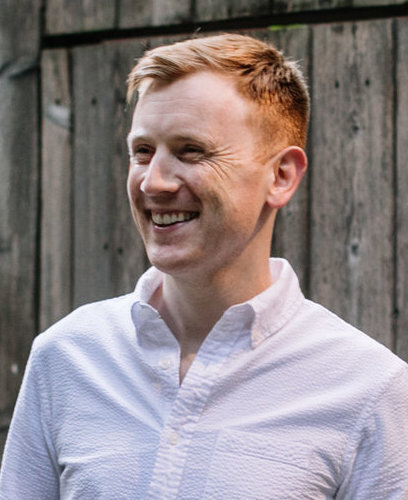Bringing Insight to LGBTQ Politics
Passion for research and teaching motivates UD professor

By Justin Richards, University of Delaware junior and intern for the University of Delaware’s Center for Political Communication
FEBRUARY 10, 2020″Professor Philip Jones is surprisingly humble given his storied academic career. “I can’t imagine writing a book about my life. I wouldn’t want to read the book and it’s my life.” The first-generation college student earned a B.A. from Oxford University and a Ph.D. from Harvard University. He joined the University of Delaware in 2009. He is an associate professor of political science and international relations and an affiliated faculty member of the Center for Political Communication.
Growing up in England’s Lake District, Jones never saw himself as a professor or teacher. “I didn’t really have any concept of what it meant to be a professor and didn’t really have a good concept of what it meant to go to a University,” said Jones. “It wasn’t massively on my radar. I wanted to be a journalist mostly through high school and I don’t know when the professor side came in.”
After he graduated from college, Jones discovered his passion for research while working at the interest group Equal Opportunities Commission in Wales (now the Commission on Equality and Human Rights). “It became clear that I really loved the research side of it and that’s what I enjoyed about college. That was the path to me becoming a professor, certainly something I didn’t think about when I was 16 or 17.”
Jones joined the University of Delaware because of his focus in American politics and his specialty in voting and elections, public opinion, and political behavior. He thought that the university “seemed like a really good fit for someone who really cared about both research and teaching. [UD] supported both equally, they would give me the resources to do good research and space to do good teaching.”
Jones teaches courses on public opinion, campaigns and elections, and parties and interest groups. As a member of the LGBTQ community, Jones brings insight into his class on LGBTQ politics. “I love teaching LGBTQ politics because it’s a subject that isn’t taught. For most of my students, they don’t know very much about it.”
Jones is particularly interested in exploring how small groups function and succeed within a democracy. “The question is how do small groups get anything? How do small, disliked groups get anything?” Such group success may seem surprising. “LGBTQ people are like 5 percent of the population and for most of history have been deeply disliked, hated and ostracized. Yet we have some pretty big wins out of a democracy. That seems like it shouldn’t happen and is sort of an interesting question.”
Jones is currently researching political diversity among LGBTQ Americans; mainstream society’s support for LGBTQ rights; and factors that affect public support for transgender identity. In his working paper on “Respectability Politics and Straight Support for LGBTQ Rights,” Jones examines the effectiveness of normalizing messaging to the general public. “For a long-time the LGBTQ movement has tried to say that queer people are just the same as straight people, we are exactly alike, we are no different from you all, therefore you should give us rights. They have carefully vetted who can take court cases, who can speak to the media to present this suburban normative idea to the world. Nobody has tested whether that really matters.”
His findings dispel the idea such messaging matters to the general public. Jones believes that some individuals within the LBGTQ community have become marginalized as a result. “There is a non-trivial part of the LGBTQ community who feels they got sidelined. Anybody who was in anything that looked like a non-traditional relationship was told to get off the stage, not to talk to the media, not to take court cases, not to show up for photo opportunities.” Jones said. “I think finding that it doesn’t matter whether they are presented to the public or not is important. It means that maybe we can let them back in.”
To learn more about Jones’s published research, visit http://www.pejones.org/research/, https://www.cpc.udel.edu/research/publications, and the CPC’s March 2019 news story. He also tweets regularly @PhilEJones.
